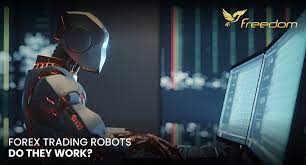In the fast-paced world of foreign exchange (forex) trading, technology continues to revolutionize how investors engage with the market. One of the most significant advancements in recent years has been the proliferation of forex robots, also known as expert advisors (EAs). These automated trading systems have garnered significant attention for their potential to streamline trading processes and deliver consistent profits. But what exactly are forex robot, and how do they work?
Understanding Forex Robots
Forex robots are software programs designed to automatically execute trades in the forex market on behalf of traders. These algorithms are built upon predefined trading strategies and parameters, allowing them to analyze market conditions, identify trading opportunities, and execute trades without human intervention.
The underlying principle behind forex robots is to remove emotional biases and human errors from trading decisions. Emotions such as fear, greed, and uncertainty can often cloud judgment and lead to impulsive or irrational trading choices. By automating the trading process, forex robots aim to adhere strictly to predefined rules, thereby potentially improving consistency and discipline in trading.
How Forex Robots Work
Forex robots operate based on a set of predefined rules and algorithms programmed by developers or traders. These rules encompass various aspects of trading, including entry and exit points, risk management parameters, position sizing, and trade management strategies.
When deployed, a forex robot continuously monitors the market in real-time, scanning for trading signals based on its programmed criteria. Once it identifies a viable opportunity, the robot will automatically execute the trade according to the specified parameters. This process occurs swiftly and efficiently, often within milliseconds, allowing forex robots to capitalize on even the shortest-lived market movements.
Furthermore, forex robots can operate 24/7, unlike human traders who are subject to fatigue and sleep. This ability to monitor the market round the clock enables robots to seize opportunities across different time zones and capitalize on market fluctuations that may occur outside regular trading hours.
Advantages of Forex Robots
The adoption of forex robots offers several potential benefits for traders:
- Emotion-Free Trading: Forex robots execute trades based solely on predefined rules, eliminating emotional biases that can lead to poor decision-making.
- Backtesting and Optimization: Traders can backtest their strategies using historical data to assess performance and optimize parameters before deploying them in live trading.
- Increased Efficiency: Forex robots can analyze vast amounts of market data and execute trades at lightning speed, enabling them to capitalize on fleeting opportunities more effectively than human traders.
- 24/7 Trading: Unlike human traders who need rest, forex robots can operate continuously, ensuring round-the-clock monitoring of the market.
Challenges and Considerations
While forex robots offer compelling advantages, they are not without challenges and considerations:
- Over-Optimization: Excessive optimization of trading strategies based on historical data may lead to overfitting, where the strategy performs well in the past but fails to generalize to future market conditions.
- Market Conditions: Forex robots rely on predefined rules, which may not always adapt effectively to evolving market conditions or unexpected events.
- Risk Management: Effective risk management is crucial when using forex robots to prevent large losses, as automated systems can execute trades rapidly and at high frequency.
- Technical Issues: Like any software, forex robots are susceptible to technical glitches or malfunctions, which can potentially lead to erroneous trades or system failures.
Conclusion
Forex robots represent a significant technological advancement in the realm of forex trading, offering the potential to streamline processes, improve efficiency, and mitigate emotional biases. While they are not a guaranteed path to success and require careful consideration and monitoring, many traders have found them to be valuable tools in their trading arsenal.
As technology continues to evolve, it’s likely that forex robots will become even more sophisticated, incorporating advanced algorithms, machine learning techniques, and artificial intelligence to enhance their performance and adaptability to changing market conditions. However, it’s essential for traders to approach automated trading with caution, recognizing both the opportunities and risks involved in deploying forex robots in their trading strategies.
